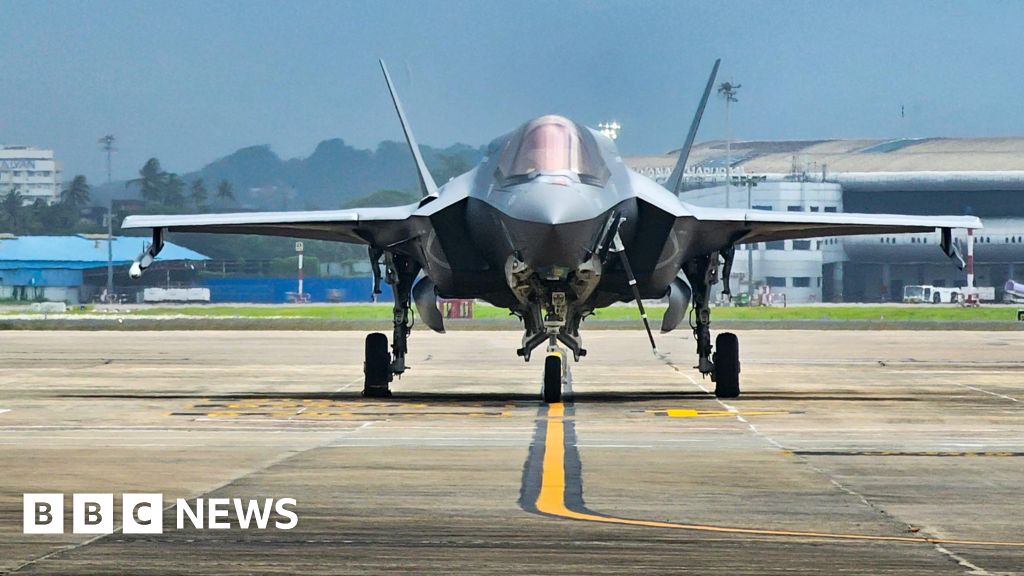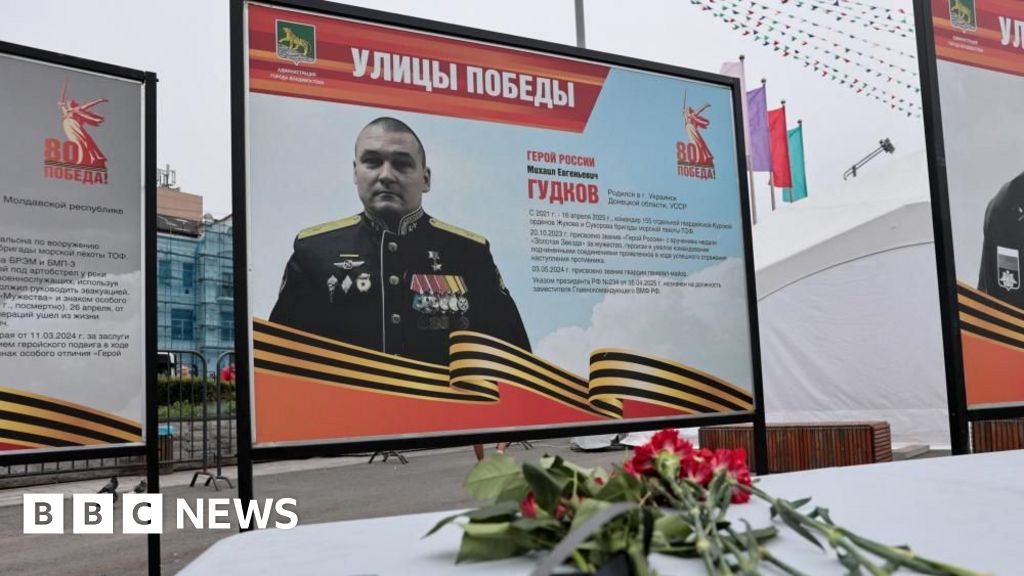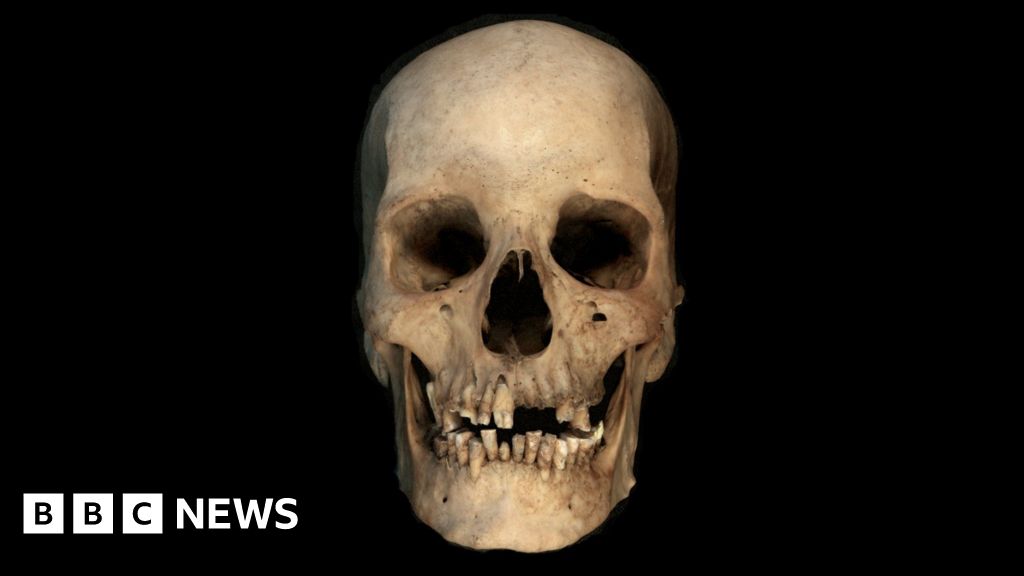 Reuters
ReutersUS President Donald Trump has given members of South Africa’s Afrikaner community refugee status, alleging that a genocide was taking place in the country.
Nearly 60 of them have arrived in the US after being granted asylum.
The South African government allowed the US embassy to consider their applications inside the country, and let the group board a chartered flight from the main international airport in Johannesburg – not scenes normally associated with refugees fleeing persecution.
Who are the Afrikaners?
South African History Online sums up their identity by pointing out that “the modern Afrikaner is descended mainly from Western Europeans who settled on the southern tip of Africa during the middle of the 17th Century”.
A mixture of Dutch (34.8%), German (33.7%) and French (13.2%) settlers, they formed a “unique cultural group” which identified itself “completely with African soil”, South African History Online noted.
Their language, Afrikaans, is quite similar to Dutch.
But as they planted their roots in Africa, Afrikaners, as well as other white communities, forced black people to leave their land.
Afrikaners are also known as Boers, which actually means farmer, and the group is still closely associated with farming.
In 1948, South Africa’s Afrikaner-led government introduced apartheid, or apartness, taking racial segregation to a more extreme level.
This included laws which banned marriages across racial lines, reserved many skilled and semi-skilled jobs for white people, and forced black people to live in what were called townships and homelands.
They were also denied a decent education, with Afrikaner leader Hendrik Verwoerd infamously remarking in the 1950s that “blacks should never be shown the greener pastures of education. They should know their station in life is to be hewers of wood and drawers of water”.
Afrikaner dominance of South Africa ended in 1994, when black people were allowed to vote for the first time in a nationwide election, bringing Nelson Mandela and the African National Congress (ANC) to power.
Afrikaners currently number more than 2.5 million out of a population of more than 60 million – about 4%.
Is a genocide being committed?
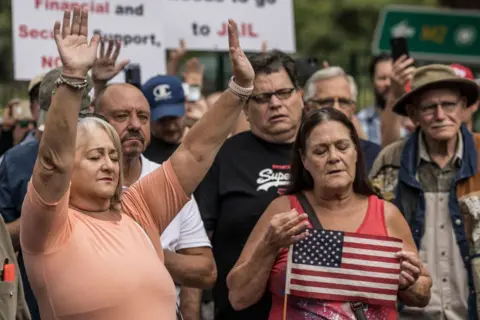 AFP via Getty Images
AFP via Getty ImagesNone of South Africa’s political parties – including those that represent Afrikaners and the white community in general – have claimed that there is a genocide in South Africa.
But such claims have been circulating among right-wing groups for many years and Trump also referred to a genocide during his first term.
The claims stem from attacks on white farmers, or misleading information circulated online.
In February, a South African judge dismissed the idea of a genocide as “clearly imagined” and “not real”, when ruling in an inheritance case involving a wealthy benefactor’s donation to white supremacist group Boerelegioen.
South Africa does not release crime figures based on race but the latest figures revealed that 6,953 people were murdered in the country between October and December 2024.
Of these, 12 were killed in farm attacks. Of the 12, one was a farmer, while five were farm dwellers and four were employees, who are likely to have been black.
What have Trump and Musk said?
Defending his decision to give Afrikaners refugee status, Trump said that a “genocide” was taking place in South Africa, white farmers were being “brutally killed” and their “land is being confiscated”.
Trump said that he was not sure how he could attend the G20 summit of world leaders, due to be held in South Africa later this year, in such an environment.
“I don’t know how we can go unless that situation’s taken care of,” he added.
South Africa’s President Cyril Ramaphosa has said it was “completely false” to claim that “people of a certain race or culture are being targeted for persecution”.
Referring to the first group who have moved to the US, he said: “They are leaving because they don’t want to embrace the changes that are taking place in our country and our constitution.”
The government denies that land is being confiscated from farmers, saying that a bill Ramaphosa signed into law in January was aimed at addressing the land dispossession that black people faced during white-minority rule.
But the law has been condemned by the Democratic Alliance (DA), Ramaphosa’s main coalition partner in government. The DA say it will challenge the law in South Africa’s highest court, as it threatens property rights.
Trump’s close adviser Elon Musk, who was born in South Africa, has referred to the country’s “racist ownership laws”, alleging that his satellite internet service provider Starlink was “not allowed to operate in South Africa simply because I’m not black”.
To operate in South Africa, Starlink needs to obtain network and service licences, which both require 30% ownership by historically disadvantaged groups.
This mainly refers to South Africa’s majority black population, which was shut out of the economy during the racist system of apartheid.
The Independent Communications Authority of South Africa (Icasa) – a regulatory body in the telecommunications and broadcasting sectors – told the BBC that Starlink had never submitted an application for a licence.
Musk has also accused the Economic Freedom Fighters (EFF), the fourth-largest party in South Africa, of “actively promoting” a genocide through a song it sings at its rallies.
Why does a political party sing about shooting Boers?
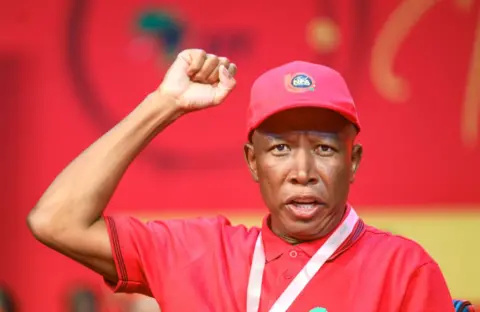 Gallo Images via Getty Images
Gallo Images via Getty ImagesEFF leader Julius Malema’s trademark song is “Shoot the Boer, Shoot the farmer”, which he sings at political rallies.
Afrikaner lobby groups have tried to get the song banned, saying it was highly inflammatory and amounted to hate speech.
However, South Africa’s Supreme Court of Appeal has ruled that Malema is within his rights to sing the lyrics – first popularised during the anti-apartheid struggle – at political rallies.
The court ruled that a “reasonably well-informed person” would understand that when “protest songs are sung, even by politicians, the words are not meant to be understood literally, nor is the gesture of shooting to be understood as a call to arms or violence”.
Instead, the song was a “provocative way” of advancing the EFF’s political agenda – which was to end “land and economic injustice”.
Lobby group AfriForum filed an appeal against the ruling, but South Africa’s highest court refused to hear the case, saying it had little chance of succeeding.
In 2023, South Africa’s former President Thabo Mbeki urged Malema to stop singing the song, saying it was no longer politically relevant as the anti-apartheid struggle was over.
The ANC says it no longer sings it, but it cannot “prescribe to other political parties what they must sing”.
Do most Afrikaners want to move to the US?
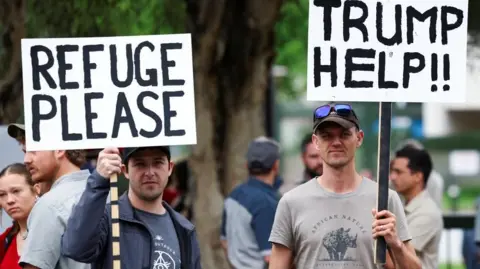 Reuters
ReutersIt doesn’t look like it.
In March, a business group said that close to 70,000 Afrikaners had expressed interest in moving to the US following Trump’s offer – from an estimated population of 2.5 million.
On Monday, the US embassy in South Africa released a statement clarifying the criteria for resettlement, saying it covered people from any racial minority, not just Afrikaners, who could cite an incident of past persecution or fear of persecution in the future.
South Africa’s most recent census, done in 2022, shows that Coloureds, (an officially used term meaning people of mixed racial origin) are the largest minority, making up 8% of the population. They are followed by white people, including Afrikaners, at 7%, and Asians at 3%.
After Trump’s offer, Afrikaner lobby group Solidarity posted an article on its website headlined: “Ten historical reasons to stay in South Africa”.
In parliament last week, the leader of the right-wing Freedom Front Plus party said they were committed to South Africa.
“We are bound to Africa and will build a future for ourselves and our children here,” Corné Mulder said.
You may also be interested in:
 Getty Images/BBC
Getty Images/BBCSource link

